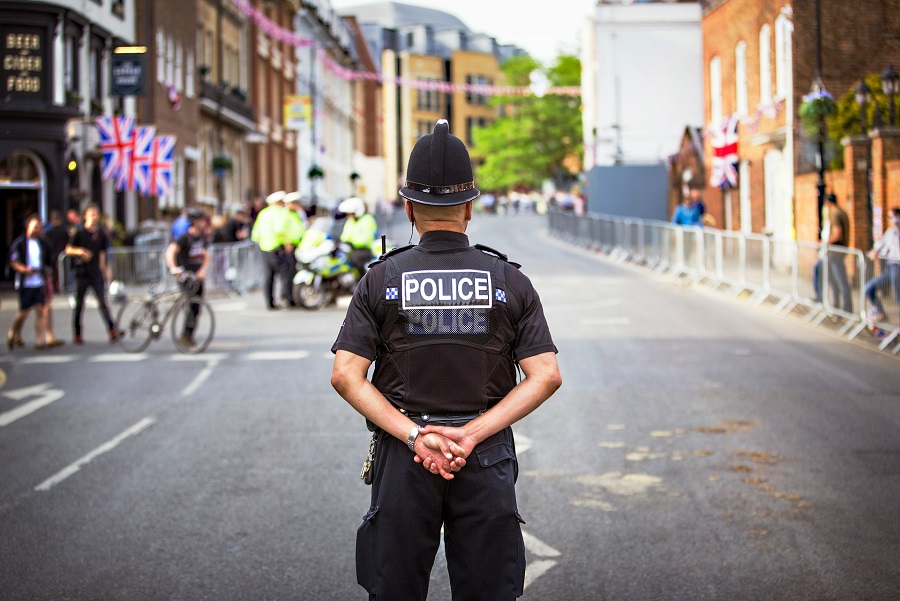Sue the police successfully: Critical steps and common pitfalls

When bringing a civil claim against police, evidence from the first 48 hours often proves decisive in court. Whether you’ve experienced wrongful arrest, faced incompetence during an investigation, or suffered emotional distress from police actions, your immediate steps can significantly impact your legal position. This guide reveals the critical actions courts scrutinize when evaluating police misconduct claims, and reveals key oversights that could compromise your rights. Before taking any action, consult with a qualified solicitor who specializes in police misconduct cases.

Key Takeaway: Can the police use your complaint to defend themselves?
Continue reading to master the timing that makes or breaks police claims.
Can I sue the police? Understanding your legal rights and time limits
Yes, you absolutely can take legal action against the police. The law is on your side through powerful legislation like the Police Reform Act 2002 and Human Rights Act 1998. When officers breach their duty of care or misuse their powers, you’re not limited to just filing a complaint with the Independent Office for Police Conduct (IOPC). You have the right to pursue a civil claim against police through the courts, which opens up a direct path to both justice and compensation. However, you need to be aware of strict time limits: while you generally have 6 years to bring a civil claim, this drops to just 1 year for human rights violations. If you’ve suffered emotional distress or experienced police incompetence, the courts will expect you to show exactly how the officers’ actions fell below acceptable professional standards and directly impacted you.
10 Common valid grounds to sue the police in the UK
Courts recognize multiple grounds for police litigation, but success depends on proving specific violations rather than general dissatisfaction. A valid civil claim against police must thus demonstrate they failed in their duty of care or abused their powers.
Below are the most commonly upheld grounds:
- Wrongful arrest and false imprisonment: This includes arrests without reasonable suspicion, detention beyond legal time limits, failure to inform you of the reason for arrest, or holding you after grounds for detention have ceased.
- Physical excessive force or assault: The police may be liable for unnecessary use of restraints, disproportionate force during arrest, assault during questioning, or injuries sustained while in police custody.
- Incompetence in handling investigations: Claims can arise from failure to investigate serious crimes properly, loss of crucial evidence, failure to interview key witnesses, or negligent handling of vital forensic materials.
- Malicious prosecution: This covers pursuing charges without evidence, fabrication of evidence, withholding evidence that could prove your innocence, or deliberately misleading the court.
- Emotional distress and psychological harm: Valid claims include deliberate humiliation, traumatic strip searches, threats or intimidation, and psychological impact of wrongful detention.
- Unlawful property searches: Grounds include searches without valid warrants, excessive damage during searches, theft or loss of property, and failure to properly document seized items.
- Discriminatory treatment: This encompasses racial profiling, religious discrimination, gender-based discrimination, and disability discrimination.
- Human Rights Act violations: These claims involve breaches of your right to liberty, privacy violations, interference with family life, and freedom from degrading treatment.
- Data protection breaches: Examples include unlawful sharing of personal information, incorrect information on police databases, failure to correct inaccurate records, and unauthorized access.
- Negligent investigation: This covers failure to secure crime scenes, poor evidence handling, inadequate witness interviews, and delays causing case collapse.
From complaint to court: How to sue the police
Taking legal action against the police requires following specific procedures in the correct order. Here’s exactly what you need to do:
- First step – Police complaint: File your formal complaint through the Professional Standards Department or the Independent Office for Police Conduct (IOPC). They must acknowledge within 15 working days and can take up to 12 months to investigate serious cases.
- Evidence building: While the IOPC investigates, document everything relating to your civil claim against police. Gather medical reports, photographs, witness details, and records of any emotional distress. CCTV footage and officer body camera recordings must be requested quickly as they’re often deleted after 30 days.
- Legal consultation: Meet with a solicitor specializing in police misconduct cases. They’ll assess your case, whether it involves wrongful arrest, incompetence, or other violations, and advise on your strongest path to compensation.
- Pre-action protocol: Your solicitor can begin this while the IOPC investigates. They’ll send a detailed Letter of Claim to the police force, who must acknowledge within 21 days and provide a full response within 3 months.
- Settlement negotiations: Many cases resolve through Alternative Dispute Resolution. Your solicitor will advise whether any offer adequately compensates your losses and psychological impact.
- Court proceedings: If settlement fails, your solicitor files the appropriate claim form – Part 7 for complex cases over £25,000, Part 8 for straightforward claims under £25,000, or Judicial Review for challenging police decisions (3-month deadline).
- Court timeline: After filing, the police have 28 days to defend. The court then sets a management hearing, followed by evidence disclosure, witness statements, and eventually trial, typically 12-18 months from filing.
Proof that powers your police claim: Evidence checklist
Strong evidence determines whether your civil claim against police succeeds or falls short. The following evidence carries substantial weight in court:
- Official documentation: Police custody records, stop and search forms, arrest warrants, incident logs, and station desk records validate claims of wrongful arrest or police incompetence.
- Medical evidence: Hospital records, GP notes, injury photographs, psychological assessments demonstrating emotional distress, and expert opinions about treatment requirements.
- Digital footprints: CCTV footage, police body-worn camera recordings, 999 call recordings, and mobile phone footage. Request these within days as retention periods rarely exceed 90 days.
- Professional reports: Expert witness statements, forensic evidence reports, scene examination documents, and independent police conduct assessments.
- Personal records: Your contemporaneous diary of events, photographs, police correspondence, and expense receipts.
- Witness information: Witness contact details, signed and dated statements, and any supporting evidence about police misconduct.
- Physical evidence: Damaged property, clothing evidence, and items from unlawful searches.
- Communication records: Emails, letters, and documented phone calls showing official responses to your complaint.
Courts scrutinize evidence rigorously and will challenge questionable submissions. Particular red flags include modified recordings, witness statements lacking dates or signatures, and any content from anonymous sources. Digital evidence must come with clear verification of its authenticity. Courts also reject evidence obtained through deceptive means or documentation containing unexplained chronological gaps or missing information. These issues can severely undermine your civil claim against police, regardless of the claim’s merit.
Defending your integrity: When police dispute your claim
Filing a civil claim against police sometimes triggers counter-allegations questioning your credibility. The police might suggest you’ve fabricated evidence of emotional distress or exaggerated claims of incompetence. Such responses, while intimidating, shouldn’t deter you from pursuing legitimate grievances.
Police forces might respond to your claim by alleging you’ve provided false information, interfered with witnesses, or misrepresented your wrongful arrest. They may even hint at pursuing criminal charges for wasting police time or perverting the course of justice. This tactic, known as defensive counter-claiming, aims to pressure you into dropping your case.
Your strongest defence lies in meticulous documentation and unwavering honesty. Every statement you’ve made, every piece of evidence you’ve submitted, and every witness account must align perfectly with the facts. Early legal representation proves crucial. Your solicitor can defend against counter-allegations while maintaining focus on your original claim.
However, keep in mind that making false claims against the police carries serious consequences. If found guilty of perverting the course of justice, you could face up to life imprisonment, though typical sentences range from 4 to 36 months. Wasting police time carries a maximum six-month prison sentence and/or a fine up to £2,500. You might also face civil proceedings from the police force seeking to recover their investigation costs.
What you can win: Success outcomes in police claims
A successful civil claim against police delivers more than just financial compensation. It enforces accountability and drives systemic change. When officers face proven allegations of misconduct, they can receive disciplinary sanctions ranging from written warnings to dismissal. In cases of wrongful arrest or serious incompetence, officers might face criminal charges or mandatory retraining.
Financial compensation varies significantly based on your circumstances. A brief unlawful detention might secure £3,000-£5,000, while longer detentions can command £4,000-£6,000 per day. Claims involving emotional distress typically attract £5,000-£25,000, with reputation damage pushing compensation toward £100,000, especially when careers suffer. Additional special damages cover concrete losses like missed wages, medical costs, and legal fees.
Beyond monetary awards, successful claims often secure crucial non-financial outcomes. Many claimants value a formal police apology, deletion of arrest records, or commitments to reform police procedures more than financial compensation. Some cases trigger broader departmental reviews, leading to improved training and accountability measures that benefit entire communities.
Do I need a solicitor to sue the police?
While you can technically pursue a civil claim against police without legal representation, attempting to challenge a police force alone significantly reduces your chances of success. Police forces maintain powerful legal teams specifically trained to defend against civil claims.
A specialist solicitor brings crucial advantages to your case. They understand the complex legal framework governing police conduct and can immediately spot instances of wrongful arrest or police incompetence that might not be obvious to you. Their expertise proves particularly valuable when documenting emotional distress, as they know exactly what evidence courts require.
Moreover, expert legal representation strengthens your position by:
- Countering police legal teams’ defensive strategies.
- Securing time-sensitive evidence before it disappears.
- Managing strict legal deadlines and complex court procedures.
- Calculating the true value of your claim using established legal precedents.
- Protecting you from making damaging statements during police interviews.
- Navigating procedural obstacles the police might use to frustrate your claim.
FAQs
- Can I sue the police if I was guilty of the original offense but they still mistreated me? Your guilt or innocence of the original offense doesn’t affect your right to claim for police misconduct. The police must treat everyone lawfully, regardless of their alleged crimes.
- What if the officer I want to sue has left the police force? You can still proceed with your claim. The police force itself, not individual officers, typically bears legal responsibility for misconduct. Your civil claim against police continues even if officers retire, resign, or transfer.
- If I’ve already accepted an IOPC complaint outcome, can I still sue? The IOPC complaints process is entirely separate from civil claims. Accepting their findings doesn’t prevent you from pursuing compensation through the courts for emotional distress or other damages.
Pursuing a civil claim against police requires courage and careful preparation. With proper evidence, timely action, and expert legal support, you can hold officers accountable for misconduct. Whether you’ve faced wrongful arrest, incompetence, or emotional distress, don’t let intimidation deter you from seeking justice through the legal system.
Turn your case into justice!
For a confidential case evaluation with a solicitor who specializes in civil claims against police, contact Qredible today. They understand your situation and know how to build winning cases for wrongful arrest, police incompetence, and emotional distress claims.
Key Takeaways
- The law provides robust protection for citizens to pursue a civil claim against police through both the Police Reform Act 2002 and Human Rights Act 1998, with strict time limits requiring action within 1-6 years depending on the claim type.
- Successful claims require meticulous evidence gathering within the first 48 hours, including official documentation, medical records, and digital evidence that meets strict court admissibility standards.
- Most claims follow a structured process from IOPC complaint through to potential court proceedings, with many cases settling before trial.
- Expert legal representation significantly increases your chances of success and helps navigate complex police defence strategies.
Articles Sources
- hickmanandrose.co.uk - https://www.hickmanandrose.co.uk/can-i-sue-the-police
- bobbetts.co.uk - http://www.bobbetts.co.uk/cms/catarticle/dwpsuingthepolice.html
- citizensadvice.org.uk - https://www.citizensadvice.org.uk/scotland/law-and-courts/legal-system-s/police-s/complaints-and-legal-action-against-the-police/
- donoghue-solicitors.co.uk - https://www.donoghue-solicitors.co.uk/actions-against-the-police/civil-actions-against-the-police/
- met.police.uk - https://www.met.police.uk/rqo/request/comp/request-compensation-from-police/
Do you need a solicitor?
Find a solicitor on Qredible in just a few easy steps
















